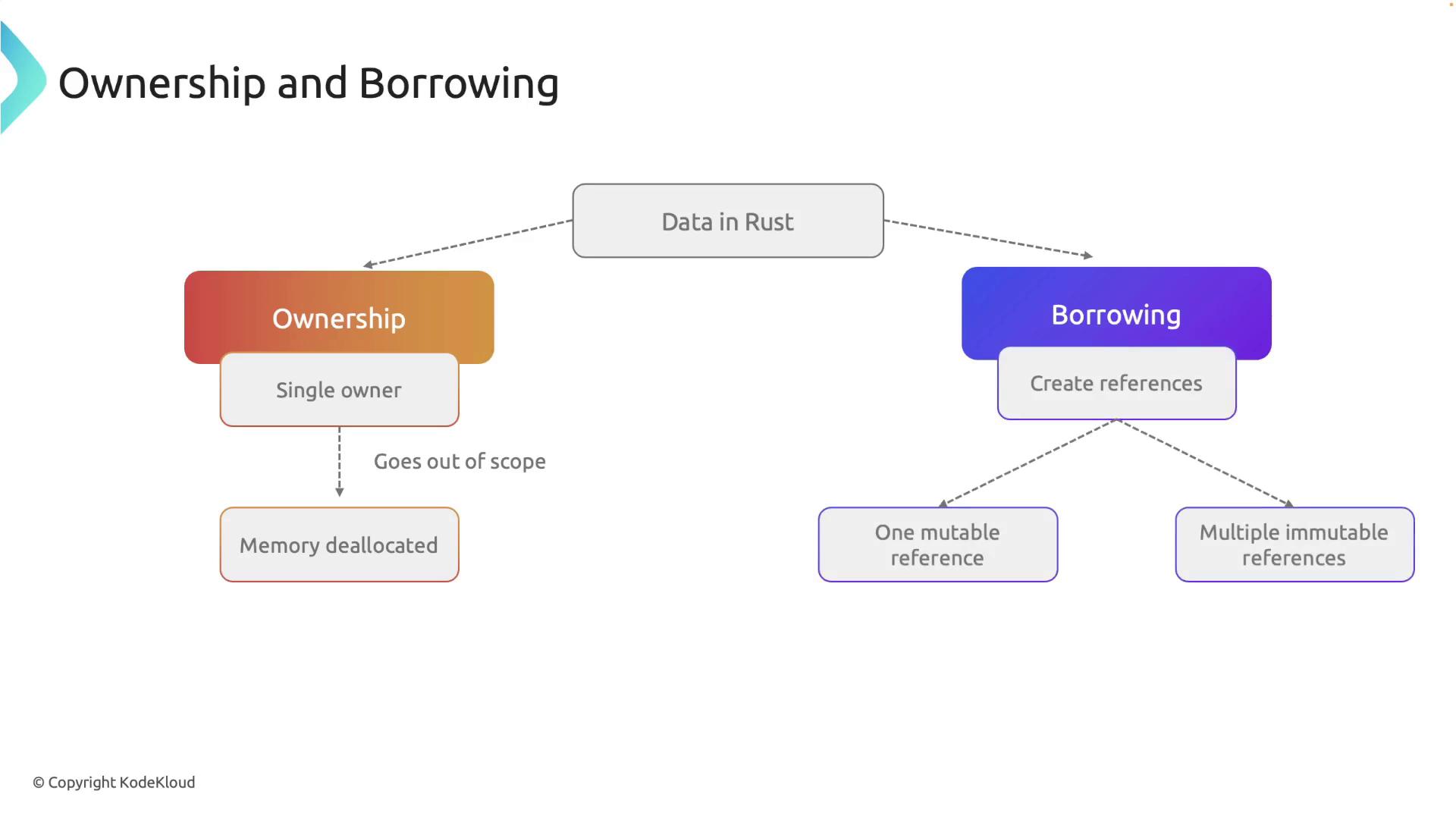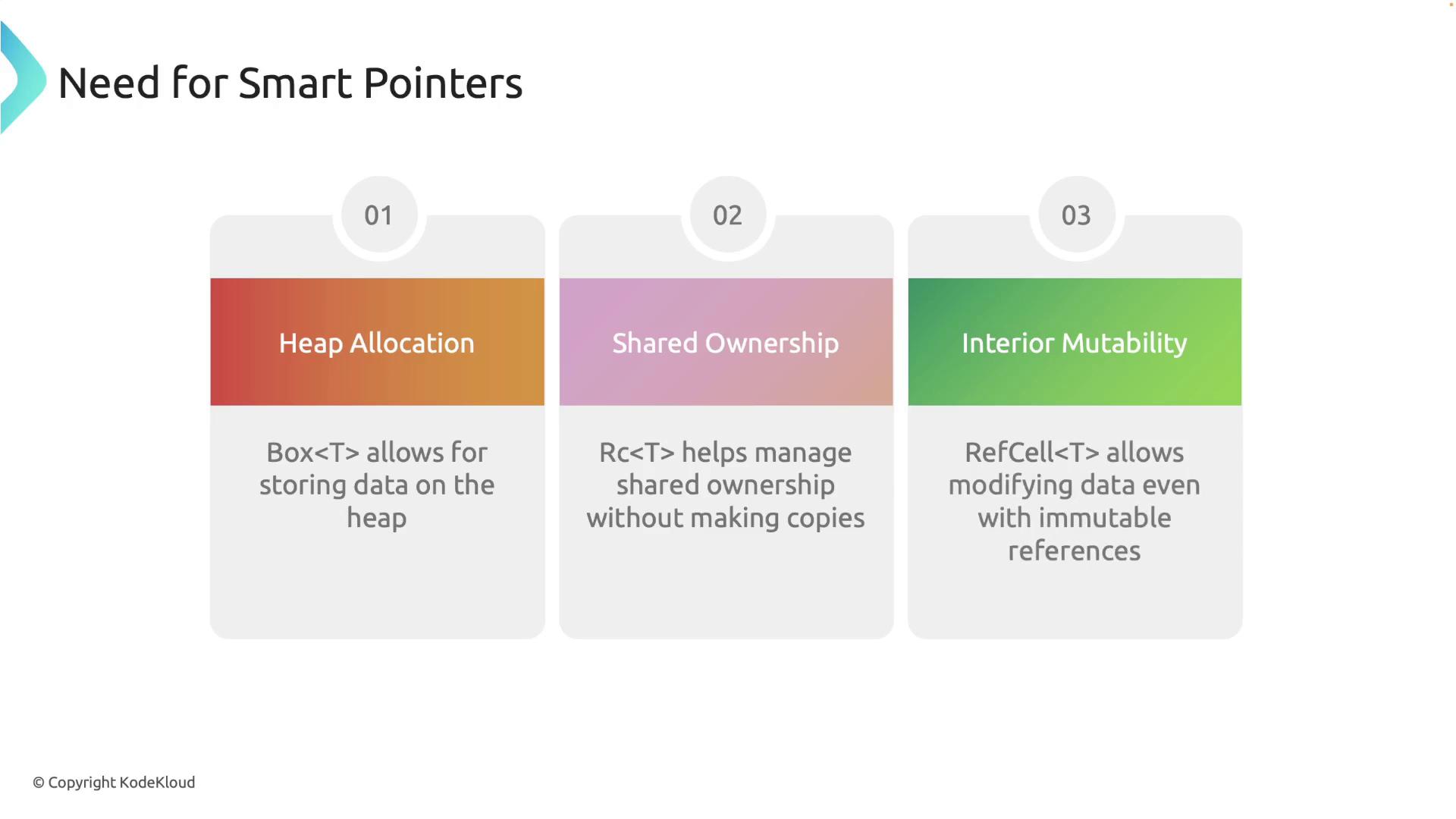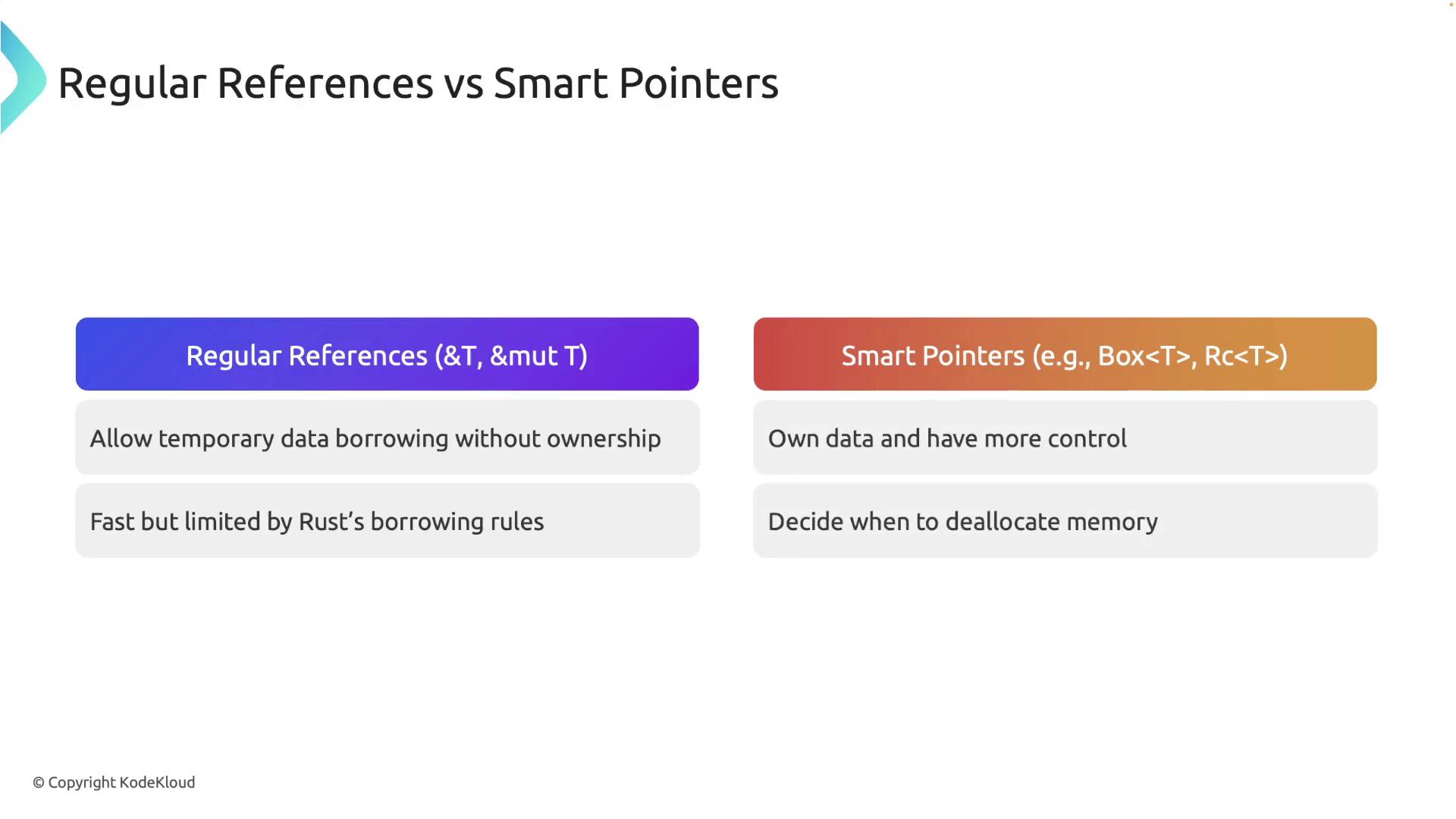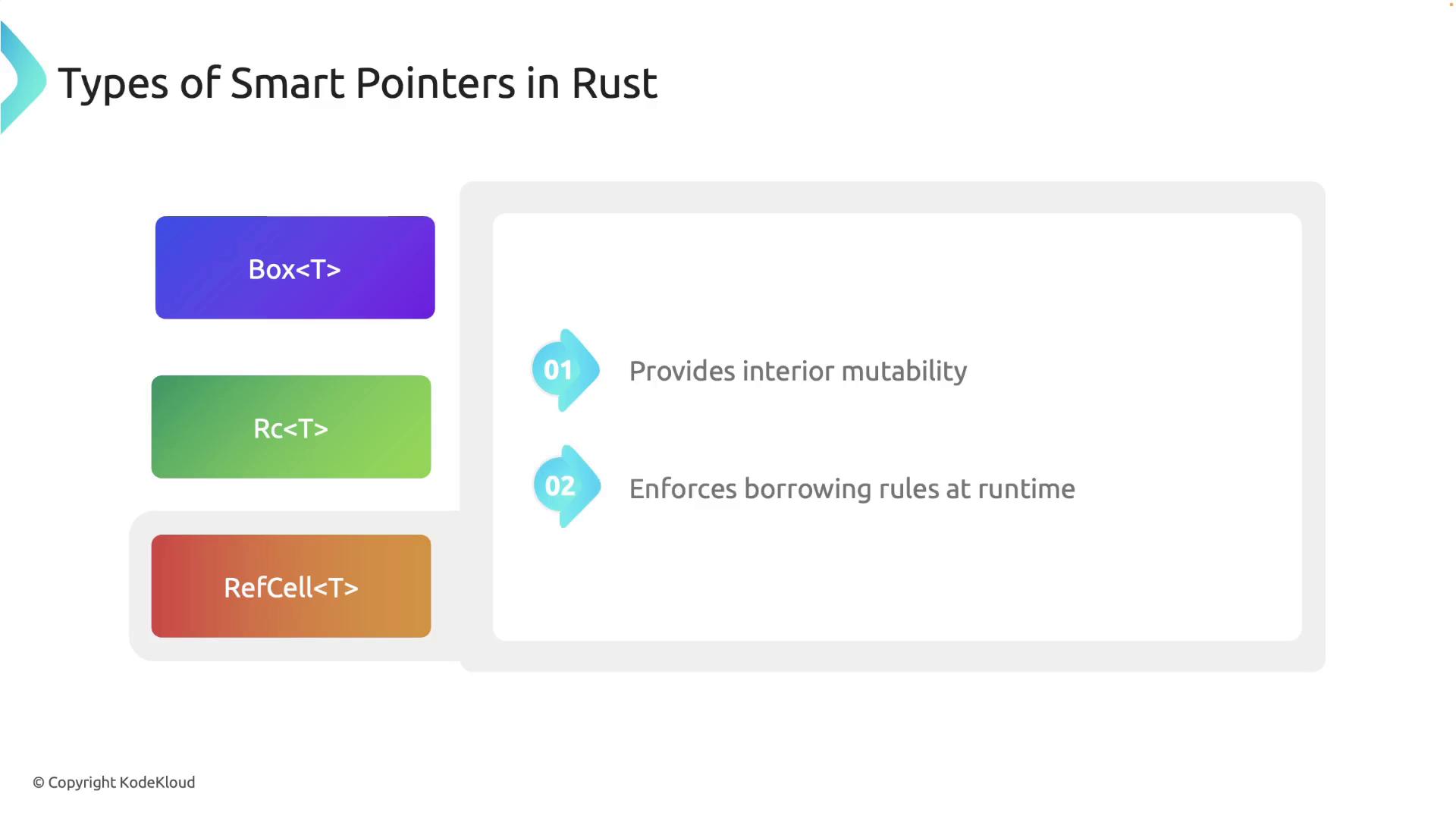What Are Smart Pointers?
Smart pointers are specialized data structures that behave like pointers by referencing data stored elsewhere in memory. Unlike regular pointers or references, smart pointers provide additional capabilities such as automatic memory management, complex ownership patterns, and associated metadata. While regular pointers merely reference data, smart pointers also manage and own the data they point to, ensuring safe and efficient memory use.
Revisiting Rust’s Memory Management Model
Before delving deeper into smart pointers, it’s important to understand Rust’s core memory management concepts: Ownership and Borrowing. Rust’s ownership system guarantees memory safety without a garbage collector, thereby improving performance and reliability. Each piece of data in Rust has a single owner, and when the owner goes out of scope, Rust automatically deallocates the memory, preventing issues like double-free errors. Borrowing, on the other hand, allows you to create references to data without taking ownership. Rust enforces strict rules: you can either have one mutable reference or multiple immutable references at any given time, but not both concurrently.
Smart pointers come into play when more flexible memory management is needed beyond the standard ownership and borrowing rules.
Why Use Smart Pointers?
Smart pointers extend Rust’s basic ownership and borrowing model, equipping developers with additional tools for robust memory and data management. Below are common scenarios where smart pointers prove indispensable:-
Heap Allocation:
Sometimes, you need to store data on the heap rather than the stack. Smart pointers likeBox\<T>help by transferring data from the stack to the heap to accommodate dynamic memory requirements. -
Shared Ownership:
When multiple parts of your program need to access the same data without duplication, smart pointers such asRc\<T>implement reference counting. They ensure that the data is deallocated only when all references are out of scope. -
Interior Mutability:
Although traditional borrowing rules restrict mutating data through an immutable reference, smart pointers likeRefCell\<T>permit safe data mutation even when the pointer seems immutable. This approach enforces borrowing rules at runtime instead of compile time.

Regular References vs. Smart Pointers
Regular references in Rust provide a simple and fast way to borrow data temporarily without taking ownership. However, they are governed by strict rules: references cannot outlive the data they point to, and you must avoid mixing mutable and immutable references concurrently. In contrast, smart pointers own the data they reference and control the deallocation process. This extra layer of control makes smart pointers more flexible, particularly in complex scenarios where regular references are inadequate.
Types of Smart Pointers in Rust
Rust offers several types of smart pointers tailored to different use cases. Here are the most commonly used ones:-
Box<T>:
The simplest form of smart pointer,Box\<T>, is used for heap allocation. It transfers data from the stack to the heap, supporting dynamic memory management. -
Reference Counting (Rc<T>):
Rc\<T>allows multiple parts of a program to share ownership of data by counting active references. The data is deallocated only once the last reference is dropped. -
RefCell<T>:
Enabling interior mutability,RefCell\<T>permits mutation of data even when the smart pointer is declared immutable. It dynamically enforces Rust’s borrowing rules at runtime, offering flexibility when compile-time checks are too restrictive.

Each smart pointer type addresses different programming needs. Choosing the right one depends on whether you require heap allocation, shared ownership, or interior mutability.